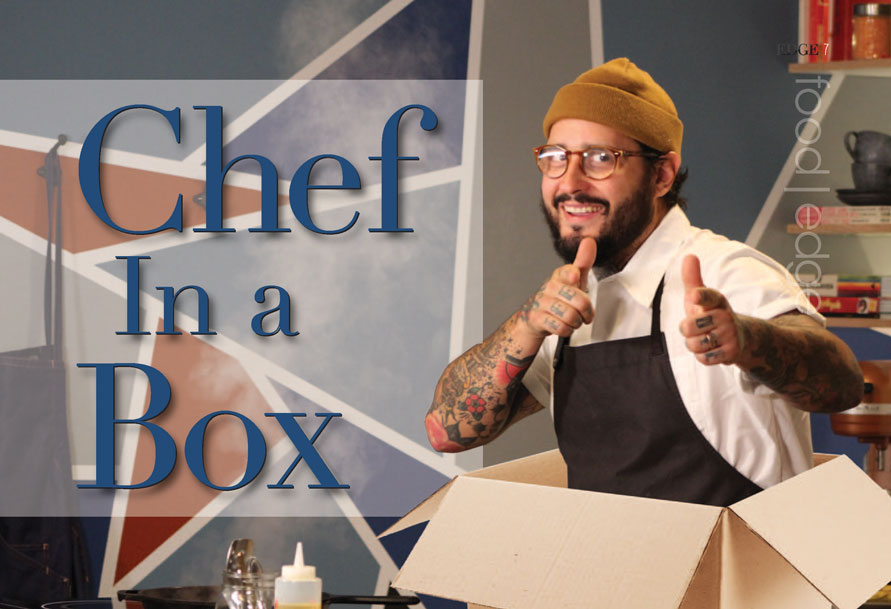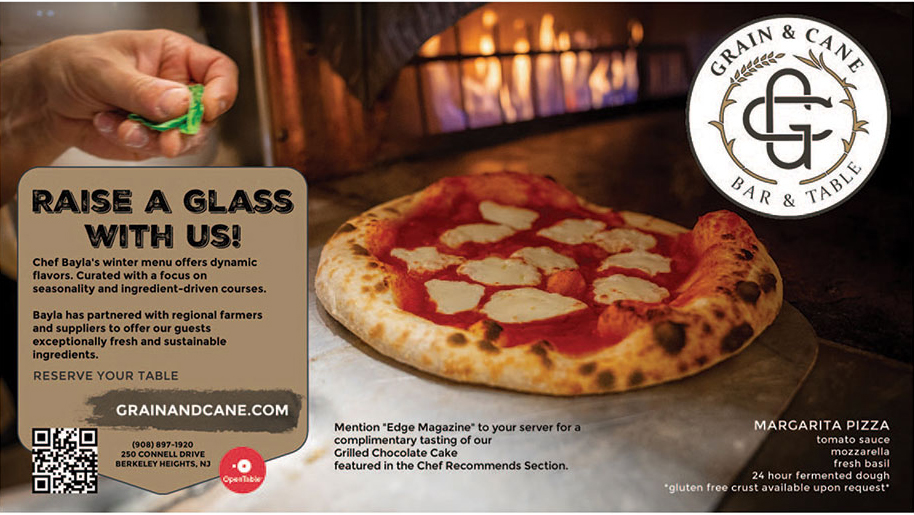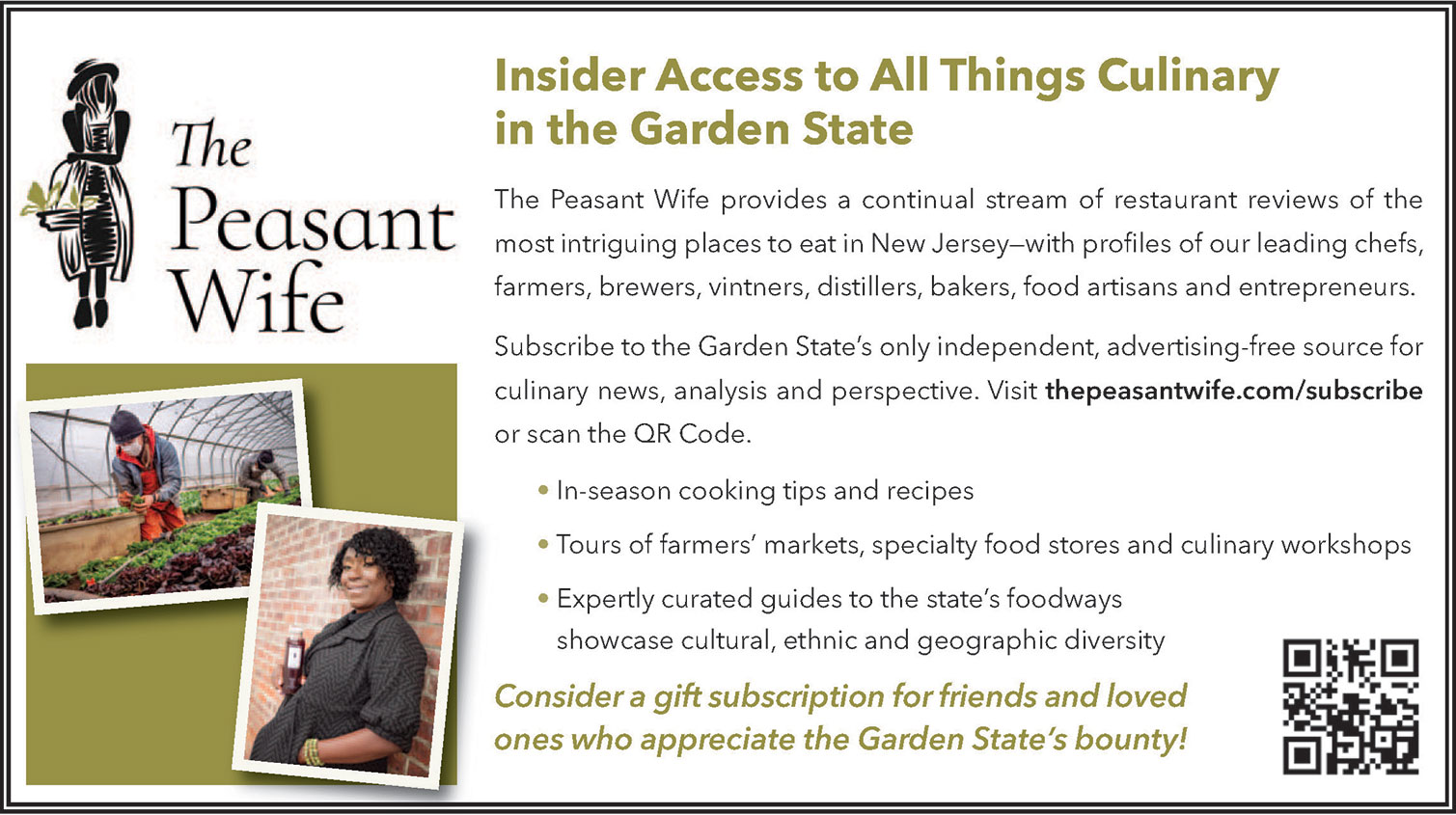Coming to a kitchen near you…Me!
Everyone has a pandemic story and this is mine. Jenna, my wife, is great at most things. However, on those rare occasions when she is unable to master a task, she gets frustrated quickly. A year ago last summer, she decided to order from one of those boxed-meal, home delivery services that became so popular when all the restaurants were shut down. Because she does not cook, and because I am a career chef, it made sense that I might be helping her out with the dish she was making, scallops and mushroom risotto, which seemed pretty complicated for her. I was ready to step in, but we agreed that ideally we wanted her to learn on her own.
My assumption was that there would be ample guidance in the box, but that was not the case. These meals come with a sheet that has photos and directions laid out in a handful of steps. For my wife, who rarely picks up a frying pan and is not an expert knife user, what was stressful was the number of things going on at once. Sear the scallops. Stir the risotto. Cook the mushrooms. I watched as she became visibly upset trying to put together what should have been a simple dinner for us. A professional chef understands timing, knows when to step in, create order and delegate tasks for the kitchen staff. A novice home cook deserves nothing less.
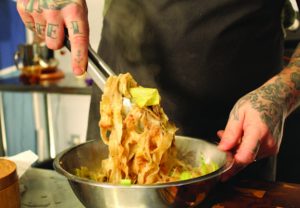
That evening I realized there was tremendous potential for a service where a restaurant chef walked you through a live, highly interactive virtual cooking class so you knew what to do with this box of ingredients that you’ve just unpacked in your kitchen.
Because of the pandemic I wasn’t working and had some time on my hands, so I decided to throw something together and test it out on my friends, including Alexia Merlo, a graphic designer, and Daniel Fiorica, a friend since we were 12 years old (he actually officiated my wedding) who worked in the financial services industry. Both Dan and Alexia would become my partners; they were in that original class and immediately wanted to become a part of it. We named our little venture “Peppr.”
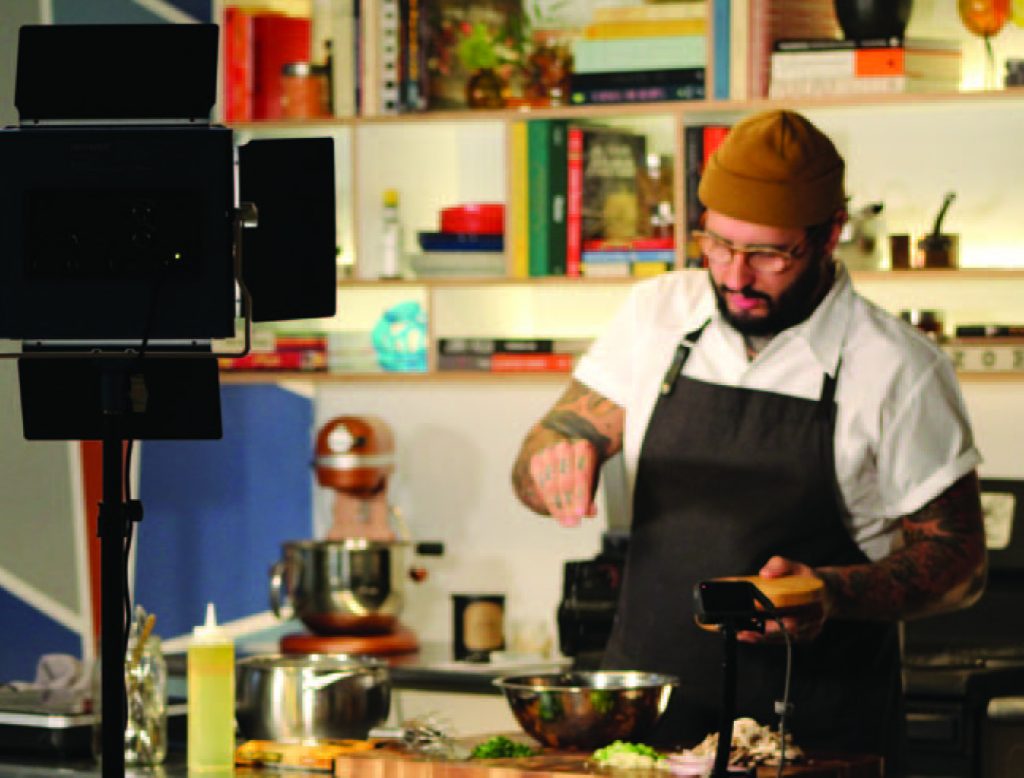
Dan focused on the business side, Alexia created the look and feel of Peppr, and I brought an understanding of the basics of how it would work—including the sourcing of ingredients and creating restaurant-quality recipes—and then bringing a chef’s guidance into somebody’s home so they would feel comfortable cooking things they might not on their own. And anyone anywhere should be able to take a Peppr class, we believed—as long as they were in the U.S. and can take a food delivery, of course.
Chopped
Three years earlier, while working as a sous-chef at Spice Market for Jean-Georges in Manhattan’s meat-packing district, I was invited to compete on the popular Food Network series, Chopped, and was fortunate to become one of the show’s champions. Prior to that, I had been a chef in New Jersey before moving to New York. Initially, I was in a little over my head. I realized that a really good chef in New Jersey makes a really good sous-chef in a top New York restaurant. There is a lot more you need to learn about the culture of New York restaurants to be chef: the volume of everything, how you guide the people you work with, and becoming a manager of human emotions. I learned a ton working in the city and wanted to grow my career when Chopped came along.
It was surreal to even be part a series I’d been watching for years, on a show that every young chef dreams of being on. I had never been in direct competition per se, except for fun stuff we did in kitchens at work, where the chef would grab a bunch of ingredients and see what we’d do with them. You needed to have fun sometimes because it is a hard life. You are in the restaurant more than you’re at home and you have to make a lot of other sacrifices to be in the business, especially to be a chef. You have to find ways to inject some enjoyment into that or it’s completely exhausting.
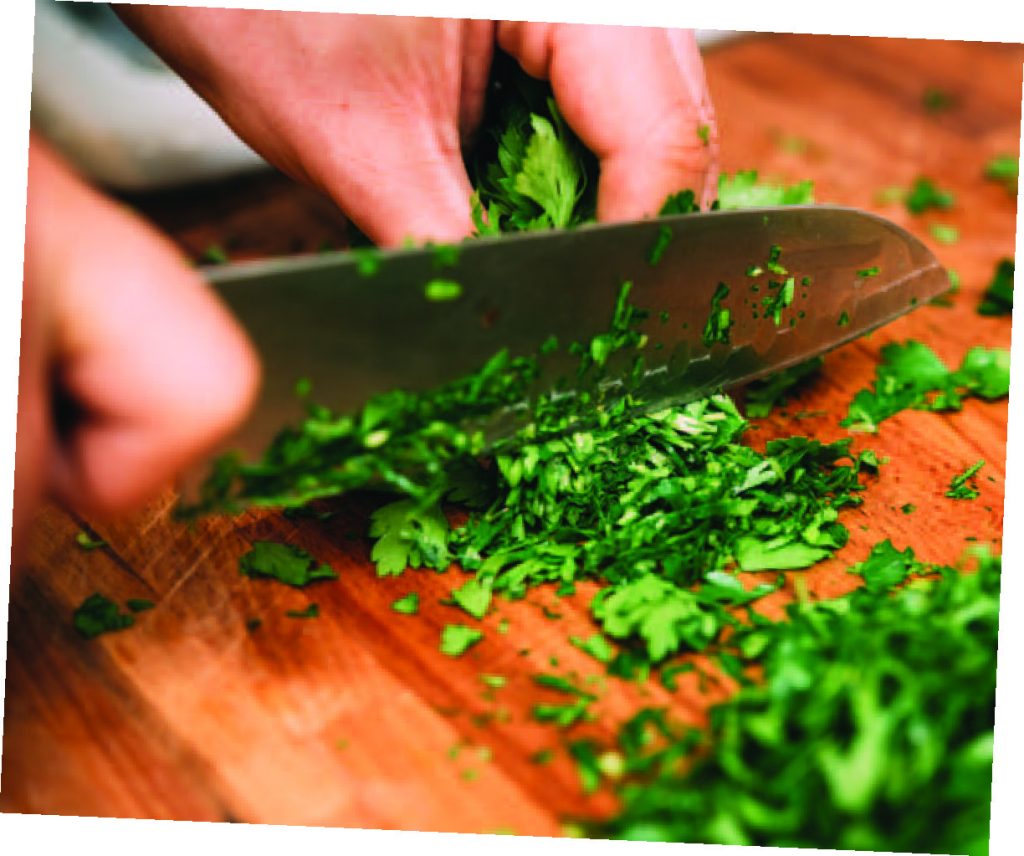
My goal on Chopped was to do something cool (or just not embarrass myself). It was interesting to be a part of the show and, looking back, it was a growth experience. Suddenly, I was being seen and recognized by strangers at a time when I had just moved from Spice Market to Terroir TriBeca, and people were coming to Terroir specifically to eat my food. It was an interesting transition going from a 400-seat restaurant where we fed a couple thousand people a day to a tiny wine bar, Terroir TriBeca, where I sourced all my ingredients from the green market and fed maybe 200. I became more confident in my abilities and, moving forward, I was able to get positions that I never dreamed would be possible—including my first executive chef job in the city. At the moment, I am executive chef at Buddha-Bar, which opened in TriBeca and has become one of the hottest restaurants in New York City. It’s mind-blowing that everything worked out for me this way. It’s been a wild ride.
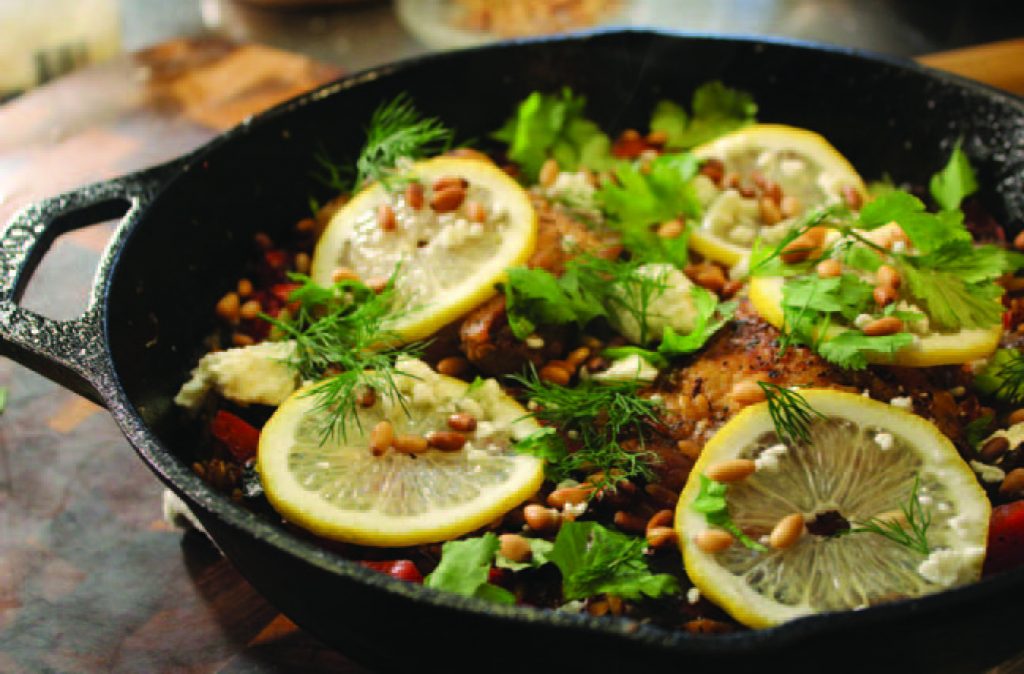
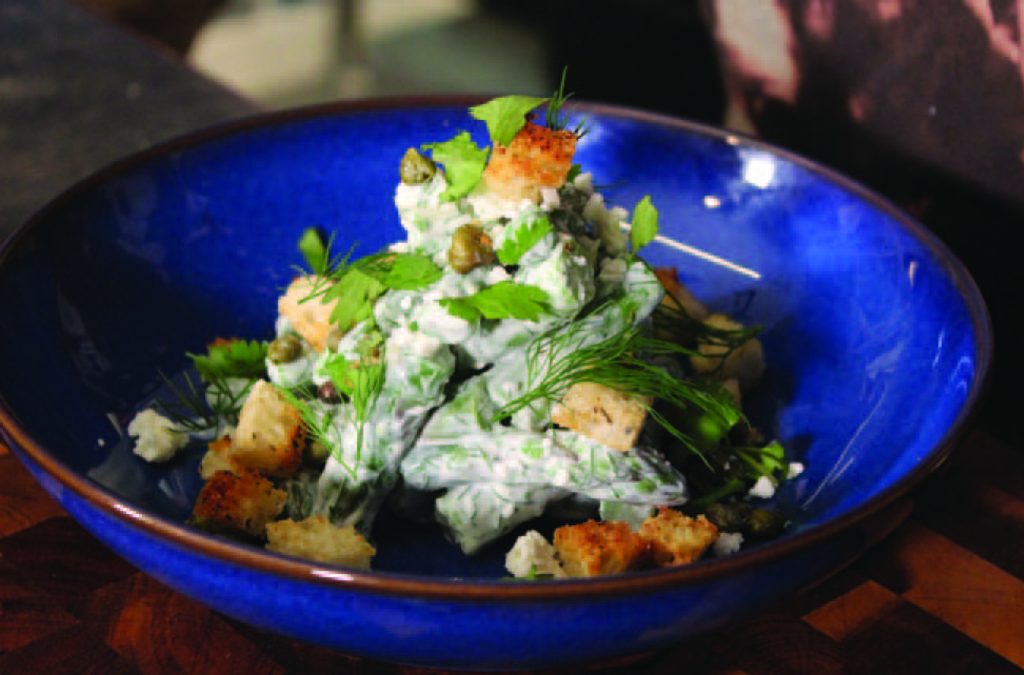
Chopped gave me valuable experience in front of a camera, in this case with millions of people watching. So “performing” in front of 10 or 20 people on Zoom during a Peppr class was easy. I was already comfortable talking to people in a kitchen setting, which of course is something inherent in my job. Part of being a chef is being a leader and taking pride in the development and growth of the people who work with me; teaching is something that’s also been a passion of mine. At Terroir, we had an open kitchen, so I often talked to customers while I was cooking. And I had prepared private dinners for people in their homes, so I was aware that you have to bring a certain entertainment value to these events while you are cooking. Sometimes, when I had a really strong home cook, they’d stand beside me while their friends were having cocktails in another room and ask me all kinds of questions. So that’s another type of teaching moment I enjoy—showing them little professional techniques they would not normally have known or seen or learned at home.
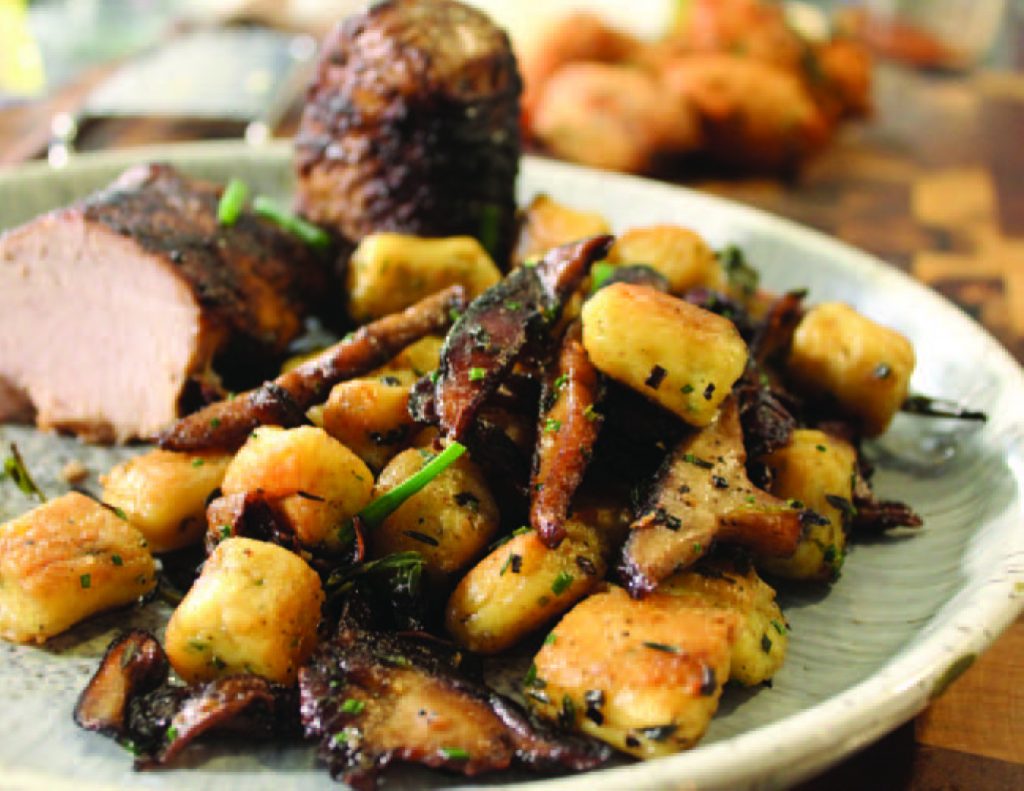
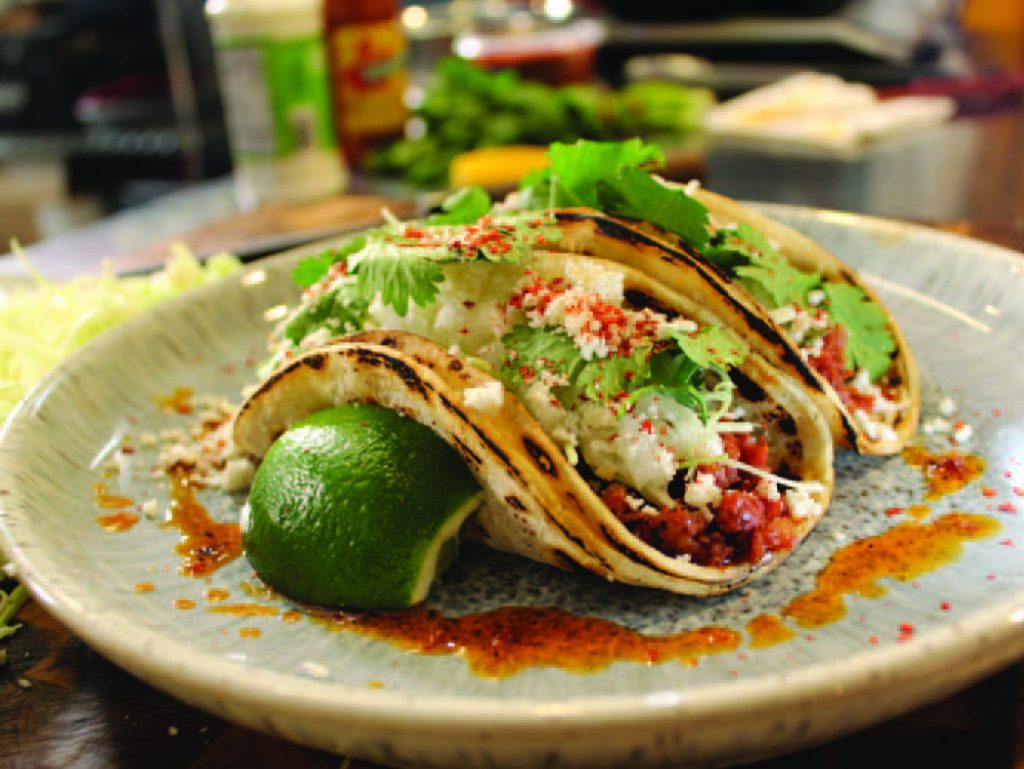
First Class
The three of us—Dan, Alexia and me—hit the ground running and by October 2020 we held our first Zoom class. Zoom turns out to be the perfect medium for Peppr, thanks in part to the pandemic. Everyone, it seems, including people who weren’t super-confident with computers, were forced to learn how to use Zoom and had developed a comfort level with it. Now almost anyone working in a business environment has become as competent with Zoom as with their cellphones.
The live aspect of Peppr has been a crucial component. YouTube cooking videos can be helpful, but you are separated from your instructor by time and space. With Peppr, all that stands between you and the chef—whether it is me or one of the five other chefs who are currently doing classes—is a screen. Peppr chefs work in front of a large monitor and can see all of the people taking the class in real time. The experience is super-interactive. For example, during a class, I might encourage everyone to watch someone who has great technique or notice someone who has made a common mistake and ask everyone to watch as I coach them out of that issue. We have the experience to recognize when someone is feeling frustrated or intimidated or just a little stuck and talk them through whatever mistake they might have made. They’re probably thinking, Oh, crap, I added too much water to this dough…how do I get out of this? For a good chef, showing them how to get out of it is not difficult, because teaching people the right way to do something is just part of a normal day for someone like me. On Peppr, it’s done live, in real time. We do ask people to mute their microphones during the class, but we invite them to ask questions as we go because I never want this to be a lecture.
We have tinkered with the format as we’ve gone along. We normally host up to 20 people in a class, but we’ve also booked “private” classes for, say, a family of five in separate locations—often with grandma on her Zoom just watching them. For families with a strong central food culture separated by the pandemic, those classes have been almost like a family reunion.
In the end, our goal is pretty simple. We try to put you in a comfort zone and coax the talented cook out of you. Initially, it may feel daunting to assemble all the ingredients and do the prep work. But when we get to the end of a class and the home cooks see and taste what they’ve made—and sit down with their family and friends to eat something they never dreamed they could make themselves—that’s where the wow factor really comes in. That encourages them to cook more ambitiously on their own and, also, to come back and take more Peppr classes.
Jersey Boy
Since you are reading this, my guess is that you live in New Jersey. I grew up in Marlboro, in Monmouth County. I should mention something that I hope you already know: They call this the Garden State for a reason. The produce, meat and seafood you’ll find at the green markets that pop up around the state is absolutely amazing. I’m writing this as summer turns to fall and the corn, tomatoes, blueberries, cucumbers, watermelon and other local produce is so good that it’s worth the extra effort and expense to find that local farmer’s market or fish market or, up in northwest Jersey, the livestock and the fowl, and the dairies.
My own culinary upbringing began in a family that was half Hungarian and half Puerto Rican. The cuisines are very different but everyone in the family loves to cook. On my father’s side, the food is very Eastern European, with a lot of hardy flavors, while on my mother’s side the cooking features lots of acids and ingredients you wouldn’t see on the other side. From the time I was very young, I was interested in the differences between the two cuisines and why one family ate one way and the other family ate another way. I think that’s what led me to work in restaurants and go to culinary school.
Creating a business in and of itself is super-difficult. Doing so during a pandemic has presented as many hurdles as it has opportunities. The greatest challenge has been finding the most efficient way to get out there, to reach the people we know will love what we do, to let them know we’re doing something really awesome, building community around the shared experience of creating great food.
I know what works for restaurants—it’s a blend of marketing and public relations and social media and word-of-mouth. But the audience for Peppr is not necessarily the same “foodie” audience. The people taking my classes are very comfortable in their own kitchens, and not all are as close to extraordinary restaurant choices as we are here in New York and New Jersey. So we need to understand the best way to use those tools. Meanwhile, we are still changing every day, with each class, finding ways to be better and more engaging. Our goal is to hold 12 to 15 classes a month heading into 2022. We have a group of talented chefs who work on our platform (it’s not just me because I’m a full-time chef in the city). We also see this as a job opportunity for chefs who were displaced by the pandemic; a lot of people in our industry are still feeling that.
At the same time, we need to be thinking about how to leverage the success we’ve enjoyed thus far into whatever Peppr will look like post-pandemic. We are developing strategies for a number of directions, include doing this in a retail setting with multiple kitchens set up, where people could come in and learn from chefs in their area.
As for me, I’m working for a great company and somewhere in the next few years I’d like to become its culinary director. Hopefully, down the road, I’ll own my own restaurant. I would love to come back and bring all the knowledge I have acquired being a chef in New York and open something near and dear and truer to New Jersey, my home. EDGE
Editor’s Note: Chef Andrew Riccatelli, has been a culinary professional for nearly two decades. In that time, he has worked alongside some of the best chefs and restaurateurs in the country including Jean-Georges, Bobby Flay and Stephen Starr. For more information on Peppr, including how to give classes as a holiday, birthday or anniversary gift, visit CookWithPeppr.com. For information on Buddha-Bar, visit BuddhaBarNewYork.com. For more information on purchasing Korin knives visit Korin.com.

